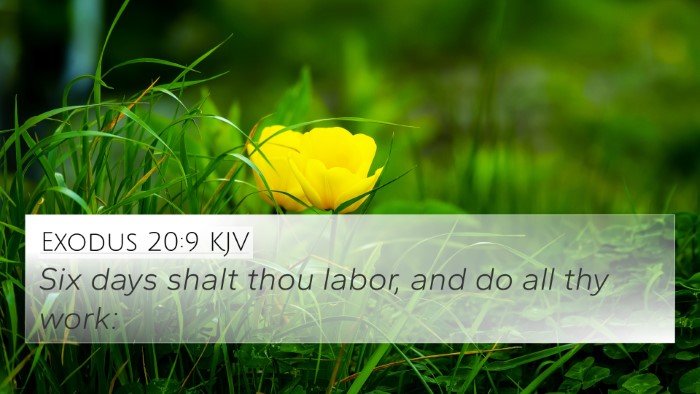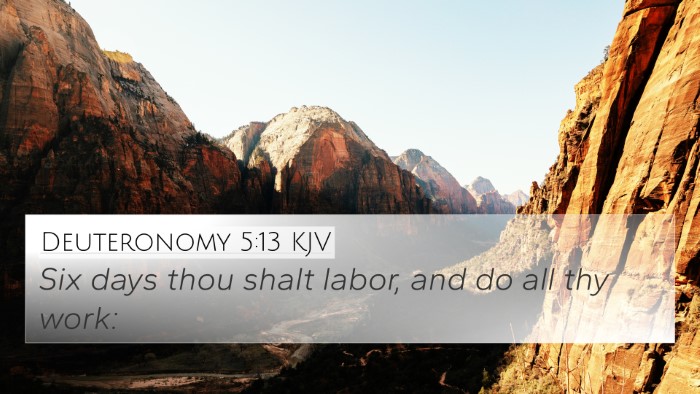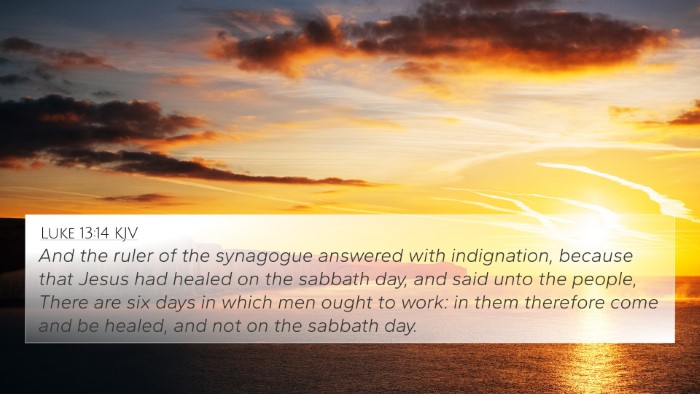Understanding Exodus 16:26
Exodus 16:26 states: "Six days you shall gather it, but on the seventh day, which is the Sabbath, there will be none." This verse is situated within the narrative of God providing manna to the Israelites in the wilderness. It establishes critical principles regarding the observance of the Sabbath and the providential care of God for His people.
Contextual Overview
The backdrop of this passage is vital for understanding its meaning. After their escape from Egypt, the Israelites found themselves in a barren wilderness, where they began to complain about the lack of food. God responds by providing manna, a miraculous bread-like substance that appeared each morning.
The Significance of the Sabbath
This verse emphasizes the Sabbath as a day of rest. The command to gather manna for six days and to abstain from gathering on the seventh is a firm reminder of God's order and intention for His people. Here are some important insights:
- Divine Provision: God ensures that the people have enough food, teaching them to trust His provision.
- Sabbath Observance: This directive lays the foundation for the Sabbath rest, highlighting its integral role in the Israelite covenant with God.
- Testing and Obedience: The gathering of manna serves as a test of obedience, illustrating the importance of following God's commands.
Commentary Insights
Biblical scholars have examined Exodus 16:26 in various ways:
Matthew Henry's Commentary
Henry notes that this verse serves to teach the people not only about the physical sustenance but also about the spiritual necessity of observing God's commands. He emphasizes that the day of rest is essential for both physical rejuvenation and spiritual reflection.
Albert Barnes' Commentary
Barnes highlights the principles of gathering and resting, indicating that the Sabbath is a time consecrated unto the Lord. He asserts the importance of setting apart this day and recognizing the cyclical nature of work and rest as ordained by God.
Adam Clarke's Commentary
Clarke offers a detailed exploration of the implications of not working on the Sabbath. He suggests that the failure to adhere to this command would not only disrupt the divine order but also lead to a diminishing of trust in God’s daily provision.
Cross-References
Exodus 16:26 can be cross-referenced with several other biblical passages that reinforce its themes of Sabbath observance, divine provision, and obedience:
- Genesis 2:2-3: The original institution of the Sabbath after creation.
- Exodus 20:8-11: The Ten Commandments highlighting the Sabbath rest.
- Leviticus 23:3: The declaration of holy convocations on the Sabbath.
- Deuteronomy 5:12-15: A reiteration of the Sabbath command, emphasizing remembrance of the Exodus.
- Isaiah 58:13-14: The blessing of keeping the Sabbath and honoring God.
- Matthew 12:1-8: Jesus’ teaching on the Sabbath and mercy.
- Mark 2:27-28: Jesus clarifies the purpose of the Sabbath, stating it is made for man.
Thematic Connections
This verse can be connected to various themes within the Bible, offering deeper insights through comparative analysis:
- Faith and Providence: The relationship between trusting in God's provision and observing His commandments, as illustrated in Philippians 4:19.
- Obedience and Blessing: The blessings of obedience depicted in James 1:25.
- Rest and Renewal: Themes of physical and spiritual rest are echoed in Hebrews 4:9-10.
Theological Implications
Exodus 16:26 reflects broader theological themes relevant for believers today:
- Covenantal Relationship: The dynamics of God's covenant, requiring obedience to experience His blessings.
- Spiritual Sustenance: The spiritual parallels between manna and Christ as the Bread of Life (John 6:35).
Conclusion
The study of Exodus 16:26 provides significant insights into God's character, the nature of the Sabbath, and the expectations He has for His people. By observing the connections with other scriptures, we can appreciate the depth of God's word and how the themes of provision, rest, and obedience resonate throughout the Bible.
Application for Believers
Engaging with this verse encourages believers to reflect on their own practices relating to work, rest, and reliance on God’s provision. Applying these principles in daily life can strengthen faith and foster a deeper relationship with the Divine.






